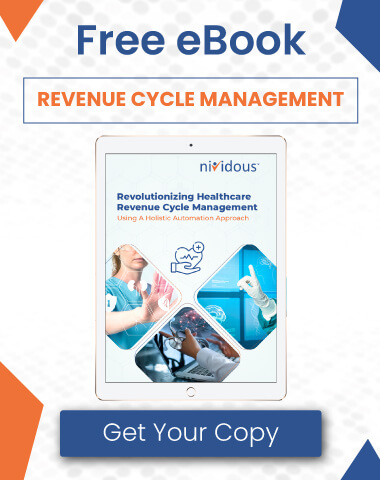Before a drug, medical device, or healthcare treatment can start changing lives—or even saving them—researchers must verify its safety and efficacy in the human body. That requires clinical trials, which are heavily regulated in the U.S. by the Food and Drug Administration (FDA), Institutional Review Boards, and local agencies.
In addition to compliance requirements, clinical trials require extensive data-handling work. Much of this data-handling work is fairly rote—and can distract researchers from the core questions they aim to answer.
Automation in clinical trials provides a solution to that problem, freeing researchers from repetitive, time-consuming tasks so they can focus on compliance, publication, and the advancement of medical science. And among the digital automation tools available to researchers, one has shown consistently strong results: Robotic Process Automation, or RPA (see sidebar below). Here’s how RPA in clinical trials is cutting costs, speeding up research, and reducing errors along the way.
Want to Supercharge Your Revenue Cycle Management?
Watch this on-demand webinar to discover how Intelligent Automation can help improve coding accuracy, streamline clinical documentation, and effectively manage compliance risks.
| Robotic Process Automation: A Concise Definition |
|
Robotic Process Automation (RPA) is a digital tool that operates computer systems through their user interfaces: spreadsheets, legacy platforms, cloud-based apps, web portals, etc. This RPA software mirrors human control of digital applications, which is why they’re often called “bots”—and why the designation includes the term “robotic.” These RPA bots create seamless integrations between unconnected systems, allowing them to transfer data and complete operations to automate tasks as well as end-to-end processes. With RPA, users can automate previously time-consuming tasks like data entry, transfer, organization, and more. |
How (And Why) Researchers Use RPA In Clinical Trials
We asked researchers and healthcare industry experts how they use RPA in their clinical trial work, along with some of the benefits they’ve obtained with this technology. We found researchers using RPA at every stage of clinical research, successfully automating tasks like:
- Patient recruitment. “When done manually, patient recruitment is time-consuming and error-prone,” says Inga Shugalo, a healthcare industry analyst for software developers Itransition. “With RPA in the game, the tool scans patients’ health records relying on the established rules, and presents the list of potential participants to doctors for further consideration.”
- Participant onboarding. “When individuals apply for a clinical trial, their confidential medical information is saved on our database through an automation system,” says Brian Harris, cosmetic dentist and lead medical advisor for oral care producer SNOW. “It ensures that an individual’s information is entered in a streamlined manner to make it easier for us to access during the trial process.”
- Test data collection and organization. “I mostly use RPA to eliminate repetitive tasks such as data entry,” says Ritesh Jain, consultant respiratory and sleep medicine physician at Australia’s WhatASleep!. “Robotic process automation collects data from different participants in the clinical trial inputs, adding it to one database for further use.”
- Follow-up visits with patient-participants. “Robotic process automation can note down your progress and set calendar appointments for tests, meetings, and patient check-ups,” says Rahil Chaudhary, ophthalmologist at India’s Eye7 vision care hospitals.
- Streamlining data analysis. By automating data collection and creating a ready-to-use digital framework for clinicians to study, RPA can support “quick analysis,” Chaudhary says. (Learn more about this use case by watching this on-demand webinar or discover more use cases of RPA in the life sciences)
Automating these tasks saves research staff time and effort—while also reducing the risk of human error, leading to stronger datasets. Time savings and lower error rates translate directly into cost reductions, so research institutions can fund even more clinical trials. And Lea McMahon—licensed counselor, professor of psychology, and chief clinical officer at Symetria Recovery—points to another subtle-yet-powerful benefit of using RPA in clinical trials:
“Robotic process automation positively impacts employee morale. This software can reduce their workload by taking over simple yet repetitive tasks—so the workers can carry out the medical trials rather than waste time on data entry.”
Choosing An RPA Provider For Clinical Trial Automation
Clinical research is a highly specialized field. Before implementing RPA in clinical trials, look for a provider with strong expertise in the medical domain, says Harris. “When implementing an RPA system in a medical research operation, choose providers carefully,” Harris says. “It would be best to extensively research the market before choosing the right solution for your medical operations.”
Start your research with Nividous, a leading provider of RPA and broader intelligent automation, which combines RPA with Business Process Management (BPM) and AI for full, end-to-end process automation. The Nividous intelligent automation platform has brought healthcare successes like 95% reductions in manual work and 85% improvements in process turnaround time—and can bring similar benefits to your clinical trial work.
See how intelligent automation can transform your clinical trial operation.
Sign up for a personalized, guided demo of the Nividous platform today.





